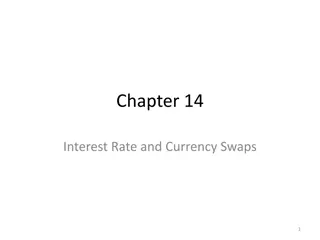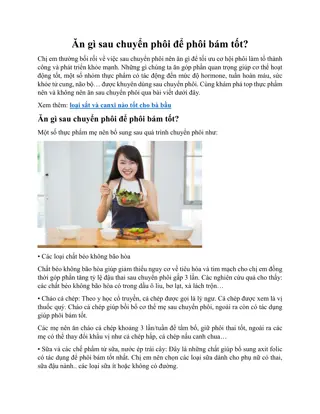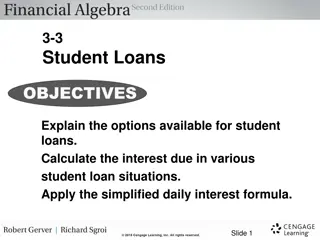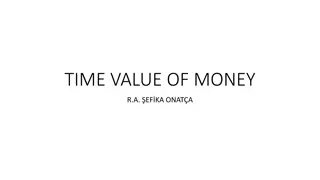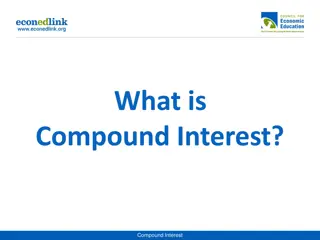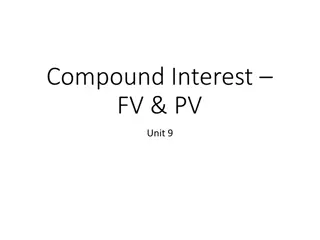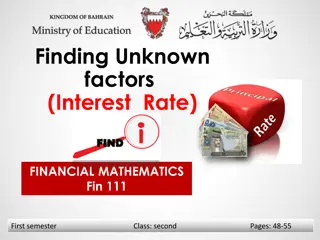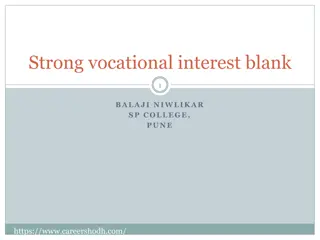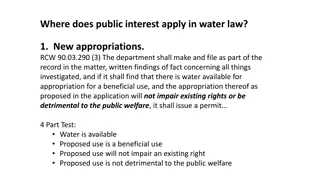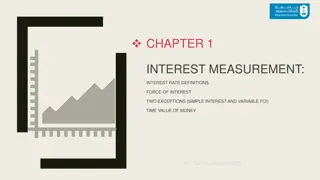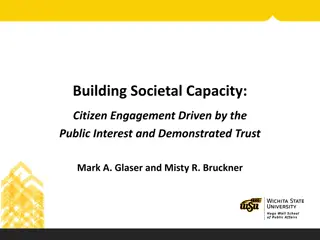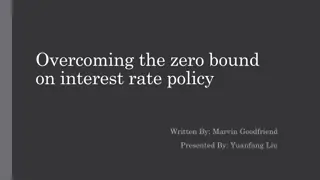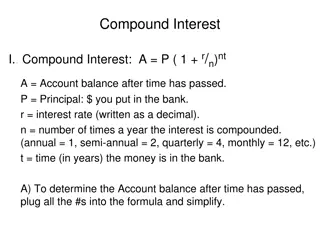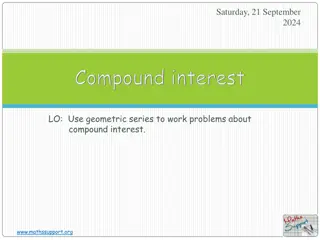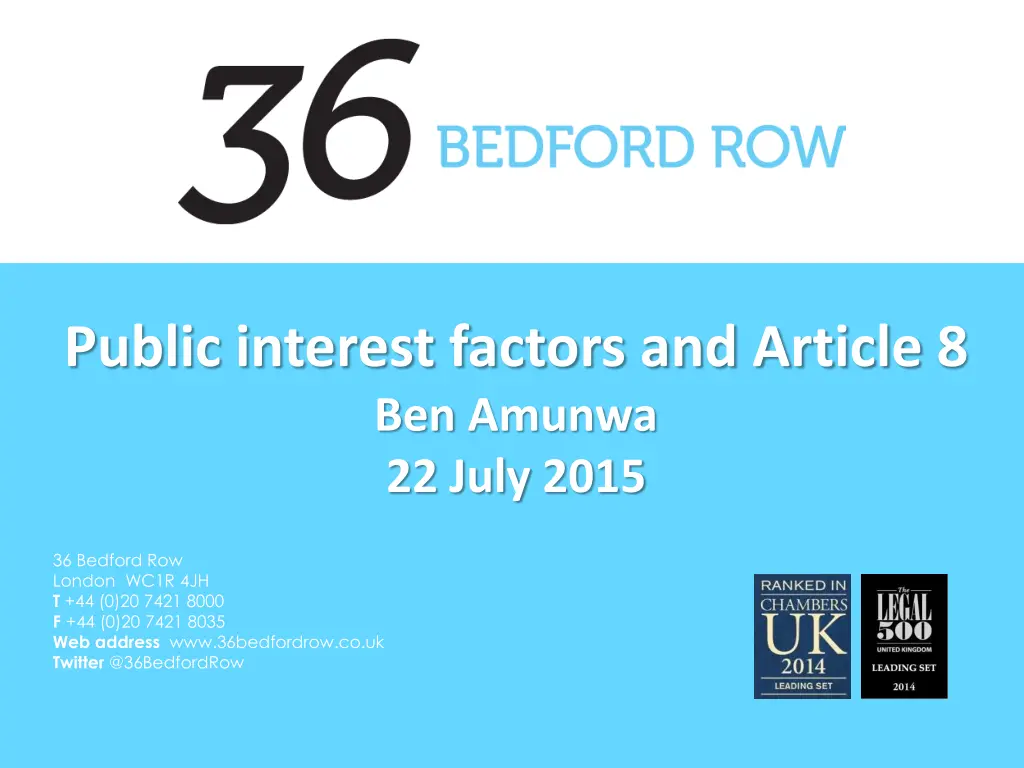
Understanding Public Interest Factors in Article 8 Appeals
Explore the statutory framework and key provisions under Part 5A added by the Immigration Act 2014, focusing on the application of public interest factors in Article 8 appeals. Learn about Section 117A, 117B, and 117C, delving into the considerations judges must make regarding immigration control, economic well-being, private life, deportation cases, and more.
Download Presentation

Please find below an Image/Link to download the presentation.
The content on the website is provided AS IS for your information and personal use only. It may not be sold, licensed, or shared on other websites without obtaining consent from the author. If you encounter any issues during the download, it is possible that the publisher has removed the file from their server.
You are allowed to download the files provided on this website for personal or commercial use, subject to the condition that they are used lawfully. All files are the property of their respective owners.
The content on the website is provided AS IS for your information and personal use only. It may not be sold, licensed, or shared on other websites without obtaining consent from the author.
E N D
Presentation Transcript
Public interest factors and Article 8 Ben Amunwa 22 July 2015 36 Bedford Row London WC1R 4JH T +44 (0)20 7421 8000 F +44 (0)20 7421 8035 Web address www.36bedfordrow.co.uk Twitter @36BedfordRow
Statutory framework: Nationality Immigration & Asylum Act 2002 ( NIAA 2002 ); New Part 5A added by section 19 Immigration Act 2014 ( IA 2014 ); Part 5A brought into force on 28 July 2014 by Article 3 of the Immigration Act 2014 (Commencement No 1, Transitory and Saving Provisions) Order 2014.
117A: Application of Part 5A Subsection (1): Part 5A applies to proportionality test in Article 8 appeals. Subsection (2): Judges must haveregard to factors in section 117B (in all cases) and section 117C (in deportation of foreigncriminal cases). Subsection (3): defines the public interest question as whether an interference with private or family life is justified.
117B:Publicinterest factors in all cases: Immigration control (subsection (1)); Economic well-being of the UK (subsections (2) and (3)); Private life or relationship with qualifyingpartner established while unlawfully in the UK (subsection (4)); Private life established while person s immigration status is precarious (subsection (5)); Children duty for those not liable to deportation (subsection (6)); o No public interest in removal where the person has a genuine and subsisting relationship with a qualifyingchild and it would not be reasonable to expect the child to leave the UK (subsection (6)(a)-(b));
117C: Additional factors in deportation cases Deportation of foreigncriminals is in the public interest (subsection (1)); The more serious the offence the greater the public interest in deportation (subsection (2)); If sentenced to imprisonment under 4 years, there are 2 exceptions where the public interest does not require deportation: Exception 1: long residence, integration and very significant obstacles tests (subsection (4)); Exception 2: unduly harsh effect on qualifyingchild or qualifyingpartner (subsection (5)); If sentenced to imprisonment over 4 years, the public interest requires deportation unless there are very compelling circumstances, over and above those in Exceptions 1 and 2 (subsection (6)).
117D: Interpretation qualifyingchild a person who is under the age of 18 and who- (a)is a British citizen, or (b)has lived in the United Kingdom for a continuous period of seven years or more; qualifyingpartner a partner who (a) is a British citizen, or (b) who is settled in the United Kingdom.
117D: Interpretation foreign criminal means a person (a) who is not a British citizen, (b) who has been convicted in the United Kingdom of an offence, and (c) who (i) has been sentenced to a period of imprisonment of at least 12 months, (ii) has been convicted of an offence that has caused serious harm, or (iii) is a persistent offender.
Commentary Other factors Sections 117B and 117C omit mention of many other factors, like delay (see EB (Kosovo)). Wider factors continue to be relevant. Unduly harsh vs. reasonableness Section 117C(5) imposes a different test to the pre-28 July 2014 Immigration Rules paragraph 399(a). In light of section 71 of the Immigration Act 2014, 117C(5) ought to be readdown to comply with the children duty. Exceptional circumstances Section 117C provides a very exceptional circumstances provision for those with sentences of 4 years imprisonment or more, but nothing similar for those under the 4 year threshold who fail under Exception 1 and 2.
Chege (section 117D Article 8 approach) [2015] UKUT 00165 (IAC), 15 January 2015 Harmonisation of the Immigration Rules and IA 2014 [13]; Chege suggests a residual discretion remains, notwithstanding the absence of any provision in Part 5A; The legal basis for this is found in the Immigration Rules at paragraph 398. The Rules remain a completecode [25].
Chegecontinued First, ask whether deportation would be in breach of Article 8 through the lens of the Rules and Part 5A. If not, then Ask whether there are exceptional circumstances is a question to be asked when and only when it has already been decided that removal would not result in a breach of the UK s obligations under Article 8 [23-25]; While it appears to be a very high threshold, the test only bites if Exceptions 1 and 2 (in section 117C(4) or (5)) do not apply, or if the person is a persistent offender or their offending has caused serious harm [27].
Chegecontinued The correct approach, where an appeal on human rights grounds has been brought in seeking to resist deportation, is to consider a. is the appellant a foreign criminal as defined by s117D (2) (a), (b) or (c); a. if so, does he fall within paragraph 399 or 399A of the Immigration Rules; a. if not are there very compelling circumstances over and above those falling within 399 and 399A relied upon, such identification to be informed by the seriousness of the criminality and taking into account the factors set out in s117B [33].
Dube (ss.117A-117D) [2015] UKUT 90 (IAC), 24 February 2015 Judges are duty-bound to haveregard to the specified considerations ,YM (Uganda) applied [21]. Only binds Judges, but Secretary of State may do well to consider 117A 117D on all Article 8 claims. Factors in 117B & 117C are not exhaustive, in light of the phrase in particular in 117A(2) [23].
Dube continued Not a radical departure or override of previous case law [25]. Part 5A is a further elaboration of the proportionality test from Razgar at question 5. What matters is substance, not form [26-27].
AM (S 117B) Malawi [2015] UKUT 0260 (IAC), 17 April 2015 The purpose of Section 117B(2)-(3) is to re-enforce the weight to be attached to the Immigration Rules that concern financial and language requirements (R (Khairdin) not followed) [15]. Mere fact of fluency or financial independence cannot assist a Claimant unless they meet the relevant language and financial requirements in the Rules [18].
AM continued Section 117B(5) requires that: Little weight should be given to a private life established by a person at a time when the person's immigration status is precarious. No definition of precarious immigration status in Part 5A [20]. Judges use the term to describe a variety of different situations [20]. Section 117(5) reflects well-established Strasbourg case law on proportionality and Article 8 [].
AM continued The Upper Tribunal gave the following definition: a person s immigration status is precarious if their continued presence in the UK will be dependent upon their obtaining a further grant of leave. [32] in some circumstances it may be that even a person with indefinite leave to remain, or a person who has obtained citizenship, enjoys a status that is precarious either because that status is revocable by the Secretary of State as a result of their deception, or because of their criminal conduct In these cases the person is well aware that he has either initially, or subsequently, imperilled the status he had, and cannot viably claim thereafter that his status is other than precarious. [33]
Badewa (ss 117A-D and EEA Regulations) [2015] UKUT 329 (11 June 2015) The correct approach to be applied by tribunal judges in relation to ss.117A-D of the Nationality, Immigration and Asylum 2002 (as amended) in the context of EEA removal decisions is: (i) first to decide if a person satisfies requirements of the Immigration (European Economic Area) Regulations 2006. In this context ss.117A-D (ii) second where a person has raised Article 8 as a ground of appeal, ss.117A-D applies. has no application;
Conclusion Dube clarifies Part 5A. AM creates difficulties for Claimants, particularly: o If private life was established while on a temporary leave (or indefinite leave or citizenship that has been revoked); o Where language and financial independence do not meet the thresholds in the Immigration Rules. Careful review of immigration status is required. It may be argued that a Claimant s status is not in fact precarious due to delays by the Secretary of State, for example.
36 Bedford Row London WC1R 4JH T +44 (0)20 7421 8000 F +44 (0)20 7421 8035 Web address www.36bedfordrow.co.uk Twitter @36BedfordRow

